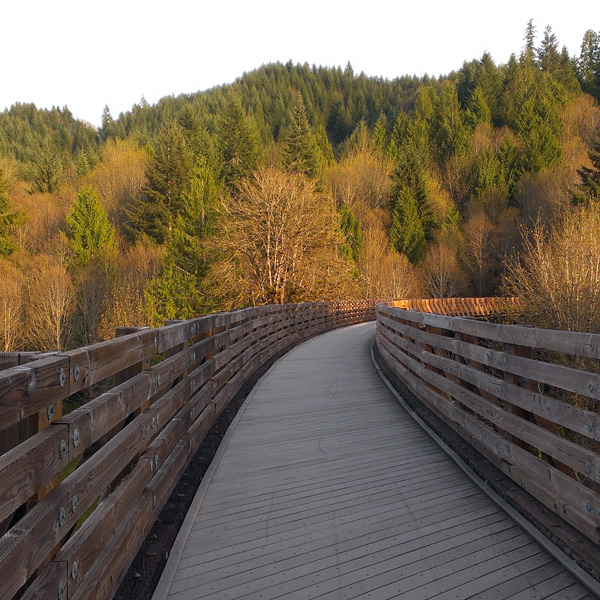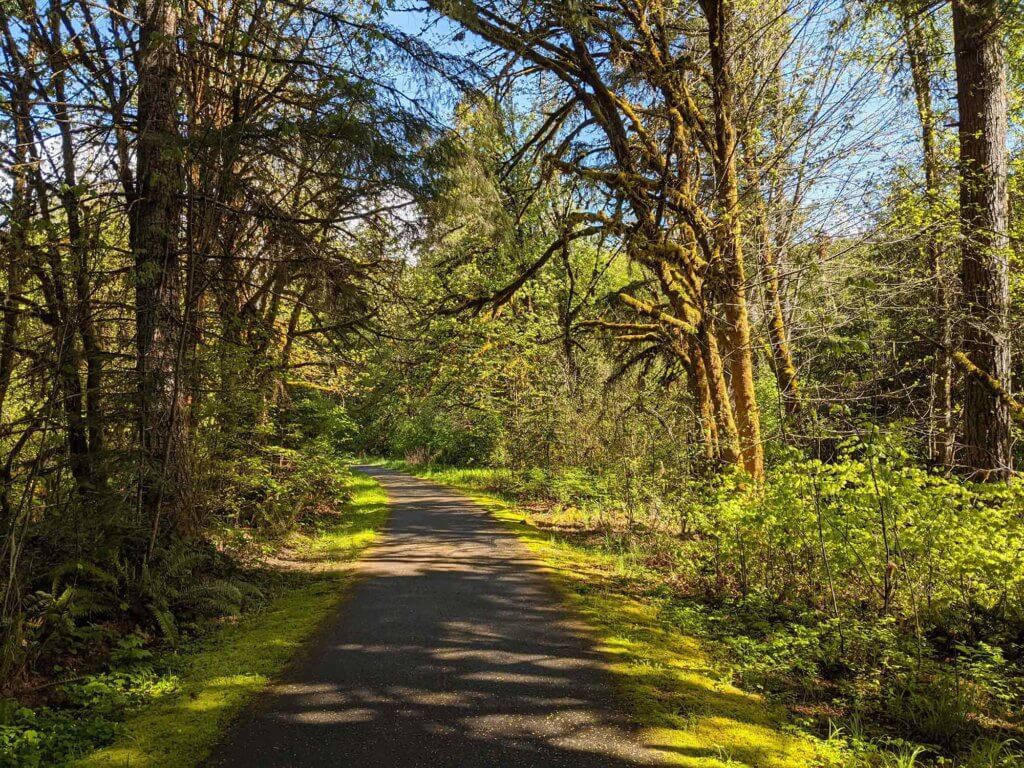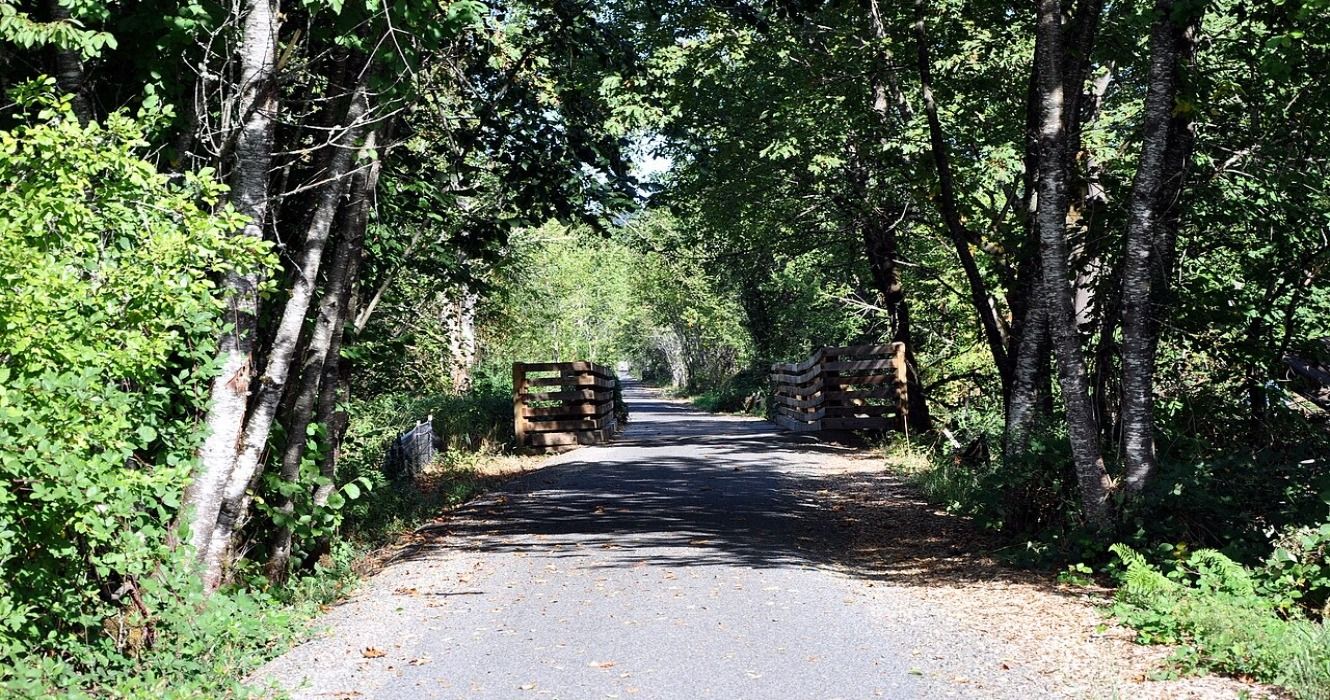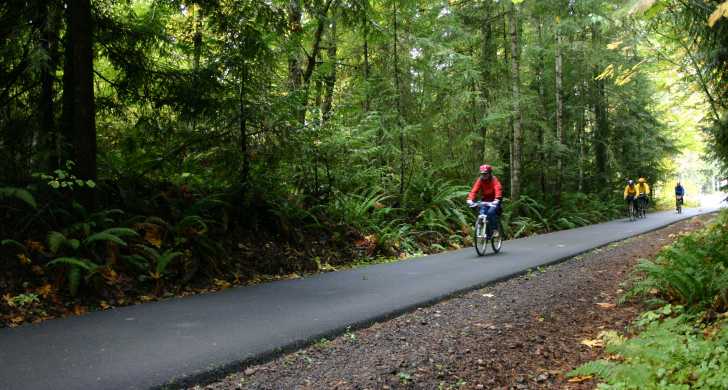The Vernonia Banks Trail: A Gateway to Nature and History
Related Articles: The Vernonia Banks Trail: A Gateway to Nature and History
Introduction
In this auspicious occasion, we are delighted to delve into the intriguing topic related to The Vernonia Banks Trail: A Gateway to Nature and History. Let’s weave interesting information and offer fresh perspectives to the readers.
Table of Content
The Vernonia Banks Trail: A Gateway to Nature and History

The Vernonia Banks Trail, a gem nestled in the heart of Oregon’s scenic Columbia River Gorge, is more than just a pathway; it’s a portal to a rich tapestry of natural beauty, historical significance, and recreational opportunities. This 1.5-mile loop trail, winding along the banks of the Vernonia River, offers a captivating experience for hikers, cyclists, and nature enthusiasts alike.
A Symphony of Natural Beauty
The trail’s allure lies in its diverse landscape. Lush forests, teeming with towering Douglas firs and vibrant undergrowth, create a canopy of green that blankets the path. The Vernonia River, a lifeblood of the region, flows alongside, its gentle murmur providing a calming soundtrack to the journey. Along the banks, wildflowers paint vibrant hues across the landscape, transforming the trail into a living canvas in the springtime.
The trail’s elevation changes subtly, offering a range of perspectives. From vantage points atop the riverbank, visitors can admire panoramic views of the river valley, taking in the sprawling greenery and the distant peaks of the Cascade Mountains. The trail itself is meticulously maintained, offering a smooth and accessible path for all skill levels.
A Journey Through Time
Beyond its natural splendor, the Vernonia Banks Trail holds a rich historical significance. The area surrounding the trail was once home to the Siletz people, who inhabited the land for centuries. The trail traverses historical sites, including the remnants of an old logging camp and the foundations of a former sawmill. These vestiges offer a glimpse into the region’s past and the vital role logging played in its development.
The trail’s proximity to the Vernonia Logging Museum further enhances its historical context. This museum, dedicated to preserving the legacy of logging in the Columbia River Gorge, offers a fascinating insight into the tools, techniques, and stories of the region’s lumbering past.
A Recreation Paradise
The Vernonia Banks Trail caters to a wide range of recreational pursuits. Hikers can enjoy a leisurely stroll, taking in the sights and sounds of the forest. Cyclists can navigate the smooth path, embracing the scenic beauty at their own pace. Birdwatchers can observe a diverse array of avian species, from the vibrant yellow warbler to the majestic bald eagle soaring overhead.
Families can enjoy a relaxing afternoon, picnicking along the riverbank or exploring the nearby playground. The trail’s accessibility makes it a perfect destination for all ages and abilities, fostering a sense of community and shared experiences.
The Importance of the Vernonia Banks Trail
The Vernonia Banks Trail stands as a testament to the importance of preserving natural beauty and historical heritage. It serves as a vital link between the community and the surrounding landscape, offering a place for recreation, education, and contemplation.
The trail also plays a critical role in promoting environmental stewardship. By encouraging responsible use and appreciation of the natural world, it fosters a sense of connection to the land and inspires individuals to become active stewards of the environment.
FAQs about the Vernonia Banks Trail
Q: Is the Vernonia Banks Trail suitable for all skill levels?
A: Yes, the trail is generally considered easy to moderate in difficulty. It is suitable for hikers of all ages and abilities, including those with young children or mobility challenges.
Q: Are dogs allowed on the Vernonia Banks Trail?
A: Dogs are welcome on the trail, but they must be kept on a leash at all times.
Q: Are there restrooms available along the trail?
A: There are restrooms located at the trailhead, near the Vernonia Logging Museum.
Q: What are the best times to visit the Vernonia Banks Trail?
A: The trail is enjoyable year-round, but the best times to visit are during the spring and fall when the weather is mild and the wildflowers are in bloom.
Q: Are there any fees associated with using the Vernonia Banks Trail?
A: The trail is free to use.
Tips for Enjoying the Vernonia Banks Trail
- Bring plenty of water: The trail can be warm in the summer months, so staying hydrated is essential.
- Wear appropriate footwear: Sturdy hiking shoes or boots are recommended, especially during wetter seasons.
- Pack a picnic: Enjoy a meal or snack along the riverbank, soaking in the natural beauty.
- Bring binoculars: Observe the diverse birdlife that calls the area home.
- Visit the Vernonia Logging Museum: Gain a deeper understanding of the region’s logging history.
- Respect the environment: Stay on the designated trail, pack out all trash, and leave no trace of your visit.
Conclusion
The Vernonia Banks Trail offers a captivating blend of natural beauty, historical significance, and recreational opportunities. Its accessibility, scenic views, and rich history make it a cherished destination for residents and visitors alike. By preserving this trail, we ensure that future generations can continue to enjoy its unique charm and appreciate the importance of connecting with the natural world.







Closure
Thus, we hope this article has provided valuable insights into The Vernonia Banks Trail: A Gateway to Nature and History. We thank you for taking the time to read this article. See you in our next article!
